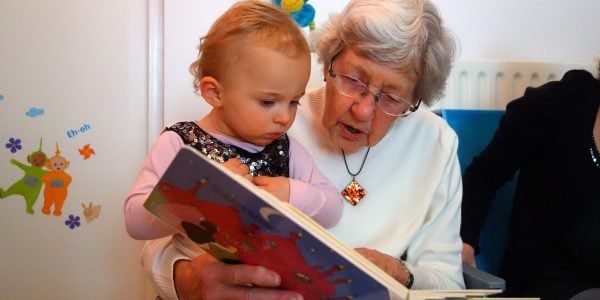
20/08/21
2 min read
A child’s educational success depends on the genes that they haven’t inherited from their parents, as well as the genes they have, according to a new Nuffield-funded study led by UCL researchers.
The study confirms that genes a person inherits directly are most likely to contribute to their achievements in education. But a parent’s genes that aren’t directly inherited are also important and can affect how well a person does at school and beyond. These genes still shape parents’ own education levels and subsequently influence the lifestyle and the family environment they provide for their children.
The study, a systematic review and meta-analysis of prior evidence of genetic impacts on educational outcomes, is published today in the American Journal of Human Genetics.
Children resemble their parents because of nature (the genes they inherit) and nurture (the environment they grow up in). But nature and nurture effects are intertwined.
Mothers and fathers each pass on half of their genes to their children, and although the other half of their genes are not passed on, they continue to influence the parents’ traits and ultimately influence the traits in their children. For example, parents with a higher genetic propensity for learning may have a greater interest in activities such as reading that, in turn, nurture learning in their offspring.
This concept – when parents’ genes influence outcomes for their offspring by shaping the environment that they provide for them – is called genetic nurture. It describes how parents’ genes indirectly influence their children’s characteristics.
For the paper, researchers reviewed and analysed 12 studies in several countries and used a method called polygenic scoring to study the influence of millions of genetic variants on educational attainment in nearly 40,000 parent and child pairs.
The researchers found that genetic nurture had about half as much impact on education success as genetic inheritance.
Genetic nurture effects captured by polygenic scores in the studies explained at least 1.28% of variance in educational outcomes, while direct genetic effects explained at least 2.89% of variance in educational outcomes. The researchers say the findings are underestimated given that polygenic scores only capture a fraction of heritability in educational outcomes; the actual genetic effects could be multiple times higher, but direct genetic effects would probably still be roughly double those of genetic nurture effects.
Lead researcher Dr Jean-Baptiste Pingault (UCL Psychology & Language Sciences) said: “We discovered genetic nurture has a significant effect on a child’s educational achievement. The effects were mainly down to their parents’ education and how it influences the environment they provide. We also found that fathers and mothers had similar genetic nurture effects, suggesting both parents are equally important in shaping and fostering an environment favourable for a child’s learning.
“This study illustrates how complex the relationship between genes and the environment is. Although our study uses genetic methods, it provides strong evidence that, as well as genetics, the environment really matters when we talk about education.”
The study was conducted by researchers at UCL, King’s College London and the Universities of Leicester, Bristol and Oslo, and was supported by the Nuffield Foundation, Wellcome, Economic and Social Research Council and the Medical Research Council.







































